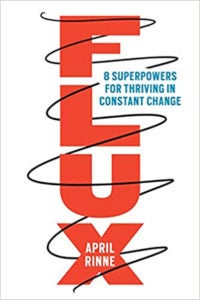
“The Zyprexa Papers,” by Jim Gottstein ’78 (Samizdat Health)
As an attorney in Alaska representing people diagnosed with serious mental illness, Jim Gottstein provided documents to The New York Times that became the basis for an exposé. It contended that Eli Lilly had suppressed information that its antipsychotic drug Zyprexa was linked to negative health outcomes including diabetes. The book chronicles his legal fight against Lilly, his advocacy for a psychiatric patient who was forced to take the drug, and the patients who helped ensure that information about the drug was available to the public. The founder of the Law Project for Psychiatric Rights, Gottstein also details his personal experience with the mental health system.

“Insanity Defense: Why Our Failure to Confront Hard National Security Problems Makes Us Less Safe,” by Jane Harman ’69 (St. Martin’s Press)
Former Congresswoman Jane Harman offers her analysis of policy missteps of presidential administrations and recommends changes to bolster national security. Problems began, she contends, when defense and intelligence spending was cut after the end of the Cold War without a strategy to face future threats, and then continued with the response to the 9/11 attacks, including the treatment of enemy combatants and the failure to prevent subsequent terror attacks. She calls for Congress to stop presidential overreach and for government officials “to do the right thing even when there is no great political benefit and when there is potentially a real political cost.”

“People in Spite of History: Stories Found in an Attorney Archive in the Banat Region,” by Tibor Várady S.J.D. ’70 (Central European University Press)
When Tibor Várady began looking through more than 100 years of files of his family’s law firm in a Serbian city in the Banat region of Eastern Europe, he found not only client information. He uncovered a history of the people of the region during world wars and under control of multiple states. The author recounts the prosecution of those who were accused of taking the “people’s property” during Communist rule, even of one man who slaughtered his own calf, and efforts to defend Jews, including sham divorces undertaken to protect the children of mixed marriages during World War II. The archives reveal what has been lost elsewhere, Várady writes: the everyday lives of those who struggled through events memorialized in history books.

“Hatchet Man: How Bill Barr Broke the Prosecutor’s Code and Corrupted the Justice Department,” by Elie Honig ’00 (HarperCollins)
When news broke that Bill Barr was nominated to be U.S. attorney general by President Donald Trump, Elie Honig commented on CNN that the nominee was qualified and respected. But Barr’s tenure as AG inspired Honig to rethink his assessment in this book, drawing on Honig’s experience as a federal and state prosecutor. According to the author, Barr violated the prosecutor’s code, by lying to support the president, injecting partisanship into his work as AG, and imposing his own legal and philosophical views on the Justice Department. Honig offers reforms that he contends would restore the department’s independence.

“Perilous Medicine: The Struggle to Protect Health Care from the Violence of War,” by Leonard Rubenstein ’75 (Columbia University Press)
Previously president of Physicians for Human Rights and currently director of the Program on Human Rights and Health in Conflict at Johns Hopkins, Leonard Rubenstein presents case studies of violence against health personnel and institutions during wartime, including the stories of health care workers he has encountered over the 25 years he has been investigating the issue. He examines the logic of the perpetrators in conflicts in places such as Syria, where the Assad regime arrested and tortured health workers who treated protesters, and Yemen, where Saudi Arabia bombed dozens of hospitals. “It is not the inevitability of massive assaults on health care that allows the violence to continue,” he writes, “but the abdication of responsibility by those in a position to prevent and end impunity for them.”

“Flux: 8 Superpowers for Thriving in Constant Change,” by April Rinne ’04 (Berrett-Koehler)
Change is a constant in life. Yet for many people it is also disorienting and makes life more difficult. In order to thrive in a world of ever-increasing change, we need to reshape our relationship to uncertainty, writes the author. April Rinne advises people to establish a “flux mindset” to enhance the ability to see opportunity in change. Each book chapter details a different “flux superpower,” ideas such as “run slower” to reduce stress and enhance discovery. Her own experience with profound and tragic change, the death of her parents from a car accident when she was 20, informed the lessons she imparts in the book.

“Humane: How the United States Abandoned Peace and Reinvented War,” by Samuel Moyn ’01 (Farrar, Straus and Giroux)
The U.S. has made a moral choice to prioritize humane war rather than global peace, Samuel Moyn asserts. In his book, he examines the consequences of that choice and how the country shifted toward the seemingly contradictory idea of war that seeks to minimize violence. He chronicles efforts to abolish war arising from the mass casualties in 20th-century conflicts. The attacks of 9/11 spurred a focus on international law and limiting collateral damage, while the advent of technology such as drones “made belligerency more humane.” Even if this vision of war may cause less damage, we should not lose sight of its risks, he contends, including acceptance of too much war.